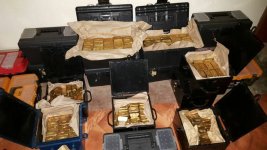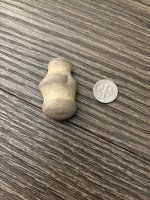Real of Tayopa
Bronze Member
Crow, I have a question for you. I have the title/ concession of Tayopa, but not the depository. I didn't know of it then. Should I get it when the present Pres leaves office. He is definitely leftist.( Mexico) Under International law would I have any rights? The depository holds maps, documents, statues, artifacts and of course many dore' bars of silver / gold. It was the main supplier of Victorio Peak and the Caballo mtn depositories for shipments to Rome. Under International law what right would I have regarding the artifacts and statues etc.?



 ,,,
,,,




